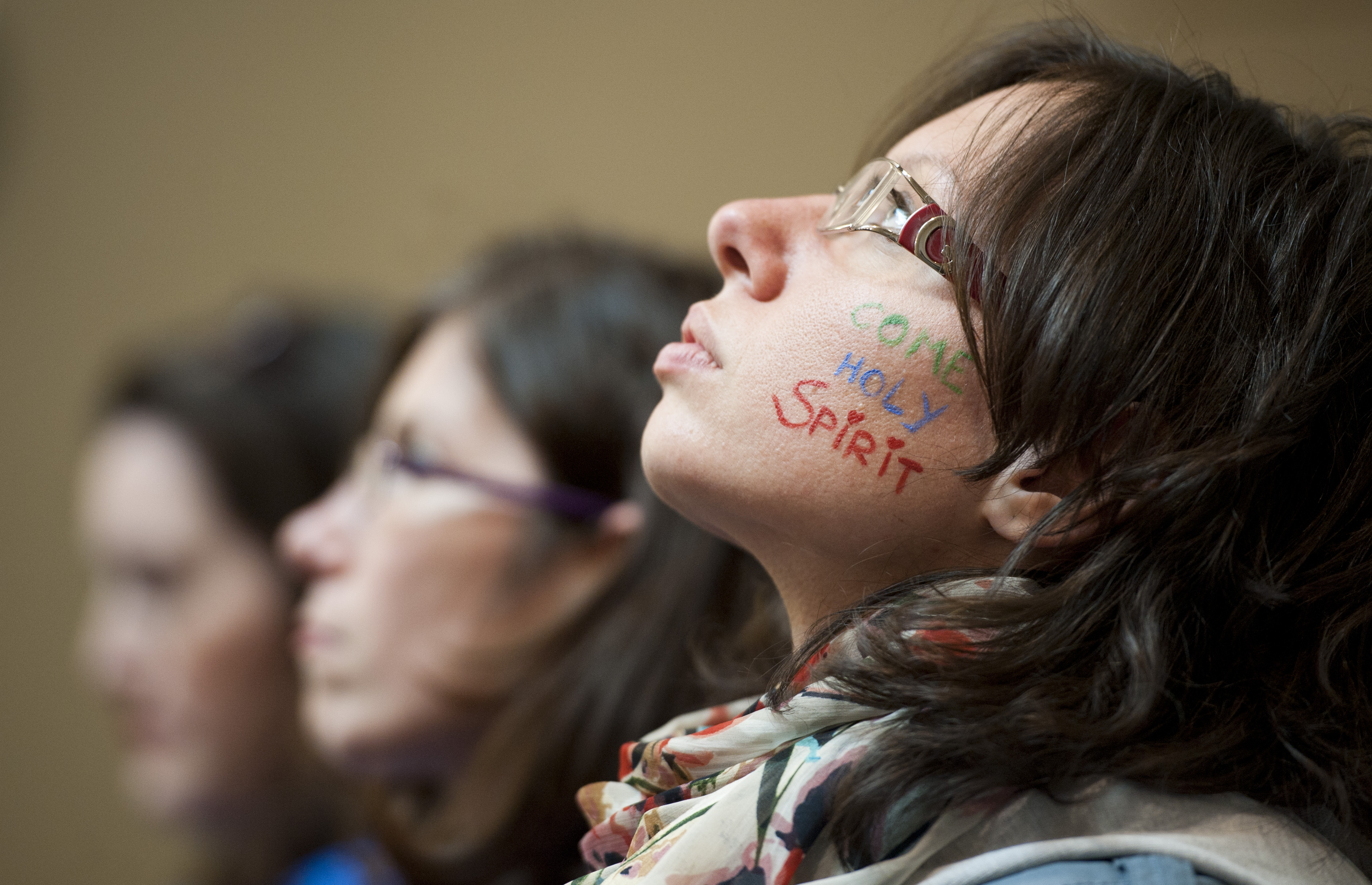Newberg thinks it’s essential to examine how people experience spirituality to fully understand how their brains work. As to what’s going on in their brains, Newberg says, “It depends to some degree on what the practice is“. Prayer, speaking in tongues, or mantra-based meditation can activate our brains. Neurotheology, or spiritual neuroscience, attempts to explain religious experience and behavior in neuroscientific terms[1].
This article originally appeared in The Atlantic
Neurotheologian[1], Dr. Andrew Newberg in his latest book, The Metaphysical Mind: Probing the Biology of Philosophical Thought studies the neurology of religious and spiritual experiences. He’s looked at 150 brain scans, including those of Buddhists, nuns, atheists, Pentecostals speaking in tongues, and Brazilian mediums practicing psychography—the channeling of messages from the dead through handwriting.
When study participants speak in tongues or function as a medium, activity decreases in the front of their brains and increases in the back of their brains. That is where incoming sensory information flow to many parts of the brain. Newberg’s findings suggest speaking in tongues is being generated from some place other than the normal speech centers.
Beliefs In the Brain
Believers could say this proves that another entity is speaking through the practitioner, a supernatural explanation. While non-believers look for a neurological or natural explanation.
It’s debatable whether these practices are more effective when founded on religious or spiritual beliefs. Dr. Dean Hamer, author of the book, The God Gene: How Faith is Hardwired into our Genes, discovered that research subjects with a particular variation of a certain gene were more susceptible to self-transcendent, spiritual experiences.
This spiritual tendency also depends on a person’s environment, according to Hamer, which can direct their innate spirituality to particular religious beliefs, or steer them away from religion altogether. He says that science will never replace spirituality because a reliance on facts alone will never have as much emotional appeal.
If the euphoria a person experiences during a meditation practice can’t be integrated into their pre-existing belief system, these feelings may become disturbing. Newberg gave as an example a meditator who sought out a clergy member to talk about his practice and felt a bit brushed off by the cleric. When meditation practices enhance a rigid, authoritarian belief system, Newberg said they can lead to more intolerance and violence towards those of different beliefs. In the book he co-authored with Mark Robert Waldman, Why We Believe What We Believe, he writes that due to some overlap between spiritual beliefs and psychological disorders, patients with obsessive compulsive disorders often develop rigid religious beliefs.
For more about potential risks of meditation, see my post Dark Side Of Meditation
Faith In Our Genes?
Spiritual beliefs are influenced by a person’s genetics and environment, says Newberg, and meditation practices are more effective when they reinforce a practitioner’s belief system. “I got beyond my brain. I got beyond my ego self…” claim some mystics, channelers, and meditators. [How could a practitioner know this other than through their belief system in their brain?]
To obtain brain scans, Newburg uses functional magnetic resonance (fMRI), and single-photon emission computerized tomography (SPECT) imaging. The book Brainwashed: The Seductive Appeal of Mindless Neuroscience, lists their technological limitations. The authors, Drs. Sally Satel and Scott Lilienfeld, write that one limitation of brain imaging is that researchers can’t make a neat map of the brain centers. Satel is skeptical that knowing a person’s neurochemical and other physical processes will ever provide a detailed understanding of someone’s subjective beliefs.
Read the full article at The Atlantic: What Happens to the Brain During Spiritual Experiences?
Questions for readers: How would a practitioner know they got beyond their brain? Will neuroscience ever be able to reduce spiritual experiences to chemical processes in the brain?
Note
1 http://en.wikipedia.org/wiki/Neurotheology



I remember that during a Yoga retreat, while doing the Shiva pose after 2 hours of meditation, I had a kanashibari experience (astral projection):
http://triangulations.wordpress.com/2010/04/09/astral-projection/
My teacher at the time gave me great spiritual advice on how to integrate the experience: “Ignore it!”
Hilarious, Sabio! Love your contrarian “punch-line”. We could use more teacher’s like him/her.
Read your post on astral projection too. “Spiritual experiences” are an endlessly interesting topic. I’ve had many “flying” dreams. Most of those dreams were pleasant and others scary. I see how having these kinds of experiences in meditation can also be pleasant or disturbing to the practitioner. So many only think of love and bliss of meditation. And, not these strange, disturbing experiences that can be the “dark side” of meditation. I posted about that Dark Side Of Meditation.
Thanks for sharing your comments.